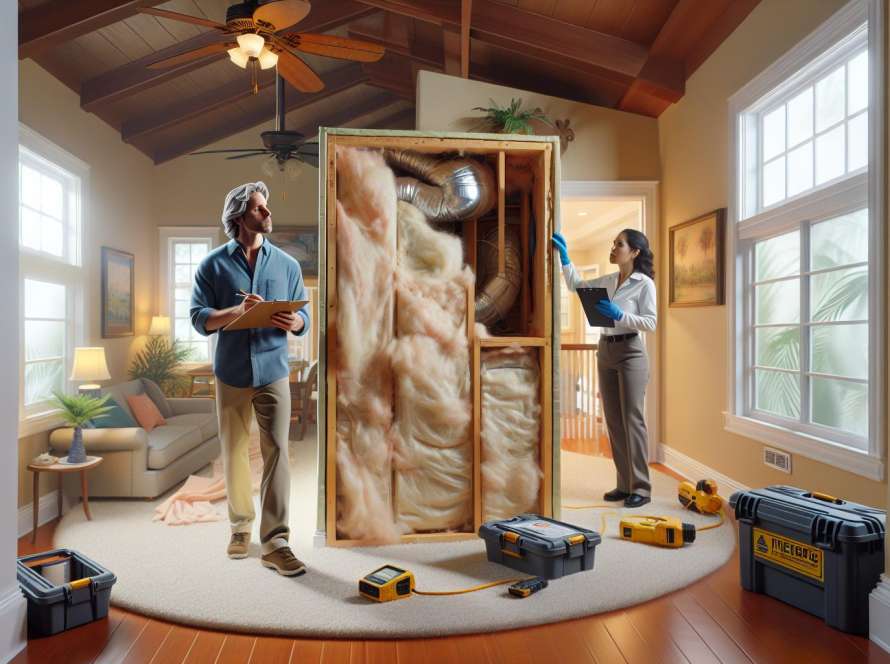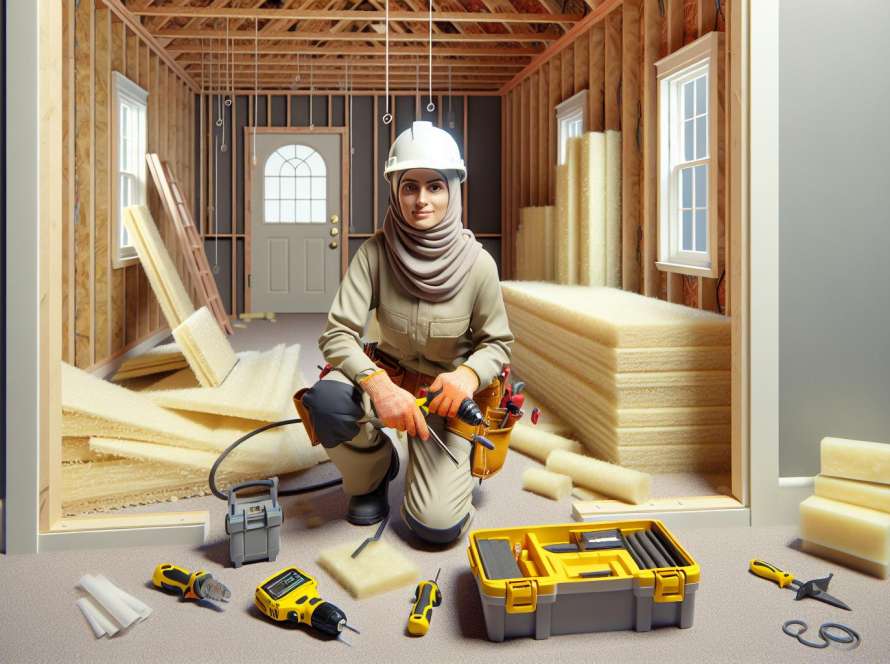When it comes to keeping our homes cool in the Florida heat, solar AC systems have become a popular and eco-friendly choice for many of us. However, like any other system, they may encounter issues that require efficient and timely repairs. In our sunny state, having a properly functioning solar AC system is not just a luxury but a necessity to beat the heat and keep our energy bills in check.
In this article, we’ll delve into the world of efficient repair for Florida solar AC systems. From common problems to troubleshooting tips, we’ll equip you with the knowledge to ensure your system runs smoothly and efficiently year-round. Whether it’s a simple fix or a more complex issue, we’ve got you covered with expert advice and solutions to keep your solar AC system operating at its best.
Common Issues with Florida Solar AC Systems
When it comes to Florida Solar AC Systems, there are several common issues that can impact the efficiency and performance of your cooling system. By identifying these issues early on, you can prevent costly repairs and ensure optimal operation. Here are some common problems you may encounter:
For Beginners: Understanding Basic Troubleshooting
- Improper Installation: Ensure your system is correctly installed to avoid future malfunctions.
- Clogged Air Filters: Regularly replace or clean air filters to maintain airflow.
- Thermostat Malfunctions: Check thermostat settings and replace batteries if needed.
For Intermediate Users: Enhancing System Performance
- Refrigerant Leaks: Monitor for any leaks and have a professional technician repair them promptly.
- Inadequate Insulation: Ensure your home is properly insulated to improve overall efficiency.
- Electrical Issues: Check for loose connections or faulty wiring that may affect system performance.
- Component Wear and Tear: Regularly inspect and replace worn-out components to prevent system breakdowns.
- Solar Panel Obstructions: Keep panels clean and free from debris to maximize solar energy absorption.
- Optimizing Solar Collection: Consider additional solar panels or positioning adjustments for increased energy efficiency.
By being proactive in addressing these common issues, Florida Solar AC Systems can continue to operate smoothly, keeping your home cool and energy bills low.
Importance of Timely Repairs

When it comes to Florida Solar AC Systems, staying on top of timely repairs is crucial for their efficiency and longevity. Let’s delve into why prompt action is essential for maintaining these systems at their peak performance:
For Beginners: Getting Started Right
- Regular inspection and maintenance can catch small issues before they escalate.
- Establish a maintenance schedule to check for leaks, obstructions, and general wear and tear.
- Learn basic troubleshooting like checking air filters and monitoring system performance indicators.
For Intermediate Users: Addressing Complex Issues
- Monitor refrigerant levels to detect leaks and prevent system inefficiency.
- Look out for electrical issues such as faulty connections or wiring.
- Consider investing in professional check-ups to ensure all components are working optimally.
- Optimize solar collection by adjusting panel angles and keeping them clean.
- Stay vigilant for signs of component wear and replace parts proactively.
- Implement energy-efficient practices like setting optimal temperatures and utilizing smart thermostats.
Proactive and timely repairs not only enhance the efficiency of Florida Solar AC Systems but also contribute to cost savings in the long run. Stay ahead of potential issues by addressing repairs promptly and effectively.
Troubleshooting Tips for Solar AC Systems
For Beginners: Basic Maintenance and Check-ups
- Clean solar panels regularly to ensure optimal energy collection.
- Inspect and clean air filters to prevent blockages and improve airflow.
- Check for leaks or cracks in the system to avoid energy loss.
- Monitor thermostat settings and adjust as needed for efficiency.
- Schedule professional maintenance at least once a year for thorough inspections and tune-ups.
For Intermediate Users: Monitoring and System Optimization
- Regularly monitor refrigerant levels to prevent overheating and system malfunctions.
- Inspect electrical connections for wear or damage and address promptly.
- Optimize solar panel positioning to maximize sun exposure throughout the day.
- Replace worn components such as belts, fans, or seals to maintain efficiency.
- Conduct regular energy audits to identify areas for improvement and optimization.
- Implement energy-efficient practices such as programmable thermostats or smart controls.
- Invest in energy storage solutions for surplus energy production.
- Consider upgrading to high-efficiency models for improved performance and cost savings.
| Key Point | Facts/Recommendations |
|---|---|
| Regular Maintenance | Cleaning and inspecting components regularly |
| Energy Optimization | Monitoring and optimizing system efficiency |
| Advanced Techniques | Energy audits, upgrades, and energy-efficient practices |
Expert Advice for Efficient Repairs
For Beginners: Basic Maintenance Tips
- Clean Solar Panels Regularly: Use a soft cloth and soapy water to remove dirt and debris.
- Inspect Air Filters: Check and clean filters to ensure optimal airflow.
- Check for Leaks: Look for any signs of leakage in the system.
- Monitor Thermostat Settings: Adjust settings for energy efficiency.
- Schedule Professional Maintenance: Engage a professional annually for thorough maintenance.
For Intermediate Users: Advanced Checks and Optimization
- Monitor Refrigerant Levels: Ensure optimum levels for cooling efficiency.
- Inspect Electrical Connections: Look for loose connections or signs of damage.
- Optimize Solar Panel Positioning: Adjust panels for maximum sun exposure.
- Replace Worn Components: Upgrade parts showing wear and tear.
- Conduct Energy Audits: Assess energy consumption and identify areas for improvement.
- Implement Energy-Efficient Practices: Adopt habits to conserve energy.
- Invest in Energy Storage Solutions: Consider options for storing excess energy.
- Consider Upgrading to High-Efficiency Models: Explore newer models for enhanced performance and savings.
- Implement Smart HVAC Controls: Utilize advanced controls for enhanced efficiency.
- Integrate with Smart Home Systems: Connect your solar AC for seamless control.
- Explore Hybrid Solar Solutions: Combine solar energy with other power sources.
- Engage in Regular Energy Monitoring: Track energy usage patterns for optimization.
- Invest in Energy Management Software: Use software to analyze and manage energy consumption.
- Explore Off-Grid Options: Consider going off-grid for full energy independence.
- Collaborate with Energy Consultants: Seek professional advice for system optimization.
- Consider Hybrid Solar Battery Systems: Combine solar energy with battery storage for round-the-clock power.
Ensuring Long-Term Efficiency

For Beginners: Maintenance Checklist
- Cleaning Solar Panels: Regularly clean panels to ensure efficient energy absorption.
- Inspecting Air Filters: Check and clean filters to maintain proper airflow and system efficiency.
- Checking for Leaks: Look for any leaks in the system that can lead to energy wastage.
- Monitoring Thermostat Settings: Adjust settings for optimal cooling without overworking the system.
- Scheduling Professional Maintenance Annually: Ensure a professional inspects the system for any hidden issues.
For Intermediate Users: Optimization Strategies
- Monitoring Refrigerant Levels: Check and replenish refrigerant levels to maintain system efficiency.
- Inspecting Electrical Connections: Ensure all connections are secure and functioning properly to avoid energy loss.
- Optimizing Solar Panel Positioning: Adjust the panels to maximize sunlight exposure and energy production.
- Replacing Worn Components: Replace any worn-out parts to prevent system inefficiency.
- Conducting Energy Audits: Regularly audit energy usage to identify areas for improvement.
- Implementing Smart HVAC Controls: Integrate smart controls for precise system management and energy efficiency.
- Integrating with Smart Home Systems: Connect the AC system with smart home technologies for enhanced monitoring and control.
- Exploring Hybrid Solar Solutions: Combine solar power with other energy sources for increased efficiency.
- Engaging in Regular Energy Monitoring: Monitor energy usage patterns to optimize efficiency.
- Considering Off-Grid Options: Explore off-grid solutions for sustainable and independent operation.
| Our Solar AC Tips | Benefit |
|---|---|
| Regular cleaning of panels | Improved energy absorption |
| Checking for leaks | Reduced energy wastage |
| Optimizing solar panel positioning | Maximized sunlight exposure |
| Implementing smart HVAC controls | Enhanced energy efficiency |
Conclusion
In optimizing Florida Solar AC Systems, we’ve covered a range of troubleshooting tips to ensure peak performance and efficiency. From basic maintenance like cleaning solar panels to advanced strategies such as integrating smart HVAC controls, our focus has been on maximizing energy absorption and reducing wastage. By following these tips, users can enhance their system’s longevity and sustainability, ultimately leading to improved energy efficiency and cost savings. Remember, regular monitoring and professional maintenance are key to keeping your solar AC system running smoothly. Embrace these practices to make the most of your system and enjoy the benefits of a well-maintained and efficient solar-powered cooling solution in the Florida heat.

